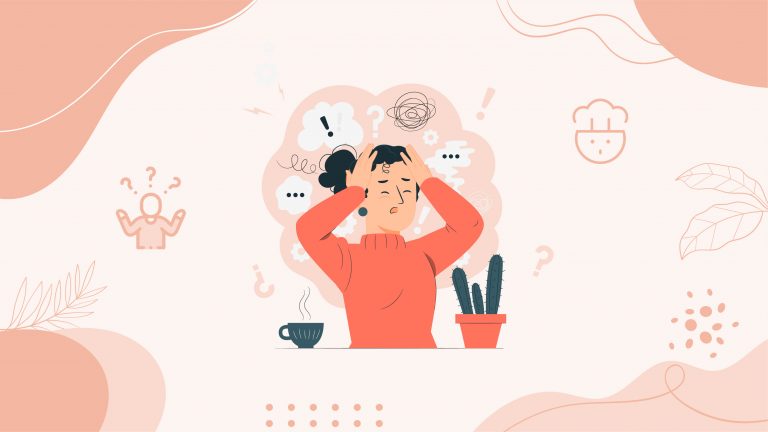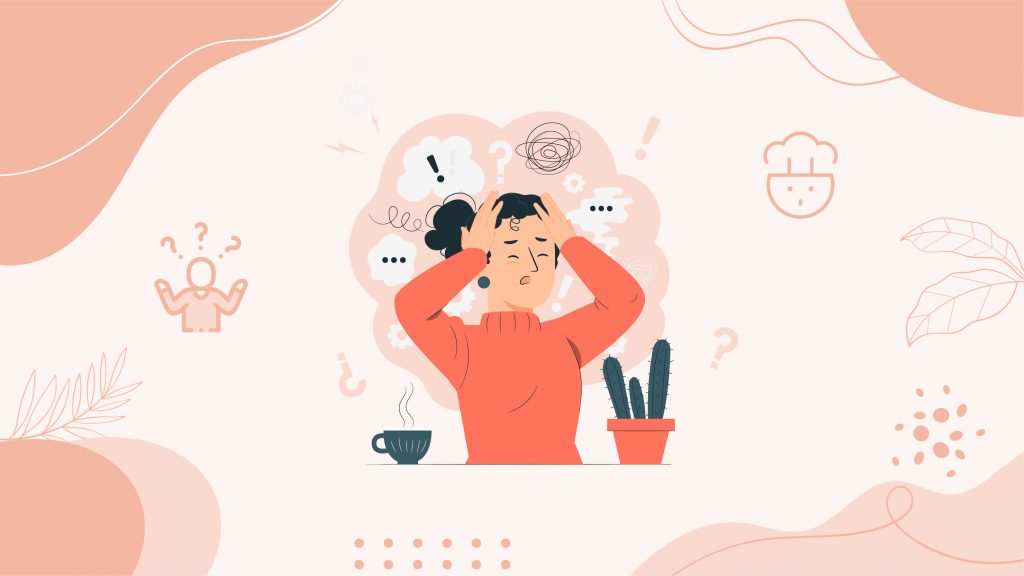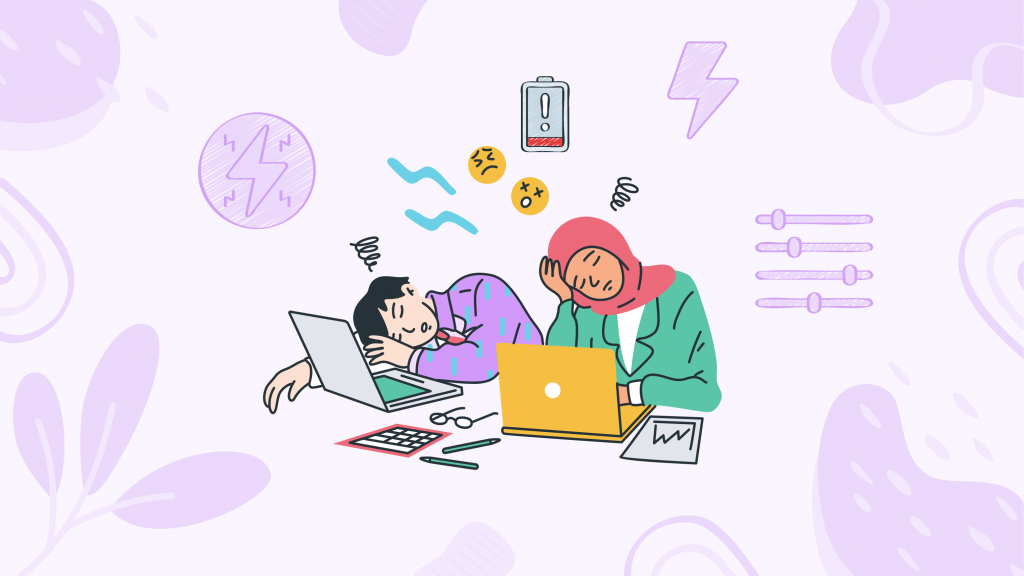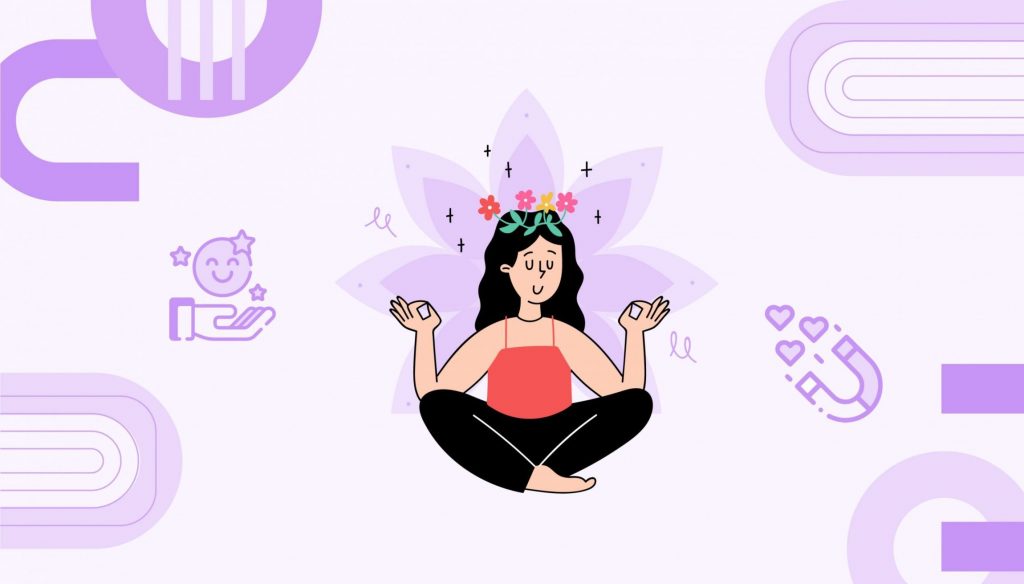“Mind filled with anger and rage, emotions hard to control, targeting the weaknesses, affecting the whole.”
A rage builds up from inside, taking the form of anger, and you have no control over your body; it is now controlled by your emotions. You are now acting like a savage and have no clue.
If this is you in some situations when you get frustrated and act out of the line, then it is time you understand why you are getting frustrated and what’s triggering it.
Do you think this feeling of getting frustrated over almost everything is becoming so intense with time that sometimes it completely gets out of your hands?
If you are dealing with frustration and have no idea how to manage it for a better lifestyle, then you are at the right place.
Here, you will discover the reasons and psychology behind your frustration and how to reduce it with healthy habits.
Understanding Why You Feel Frustrated
Now, let’s just understand that it is not only you; frustration is a universal experience. Everybody gets frustrated at one point, having a significant impact on their lives.
Most of the time, you feel frustrated when things don’t go as you’ve planned, and other times when you cannot achieve your goal even after your best efforts.
But have you wondered why you feel this way?
Well! Frustration arises from unfulfilled expectations, when you do not have control over a situation, or from a fear of failure. It becomes essential to recognize these triggers to develop highly effective strategies to manage your emotions.
It is not only your mind controlling your emotions, but psychological mechanisms are also working behind it.
The Psychology Behind Frustration and Stress
Do you have any idea how your brain is working behind the scenes when you are feeling frustrated? Let’s find out!
The amygdala controls the emotional response system of your brain, and it becomes highly engaged when you are frustrated. It can lead to stress by activating the hypothalamus-pituitary-adrenal (HPA) axis, which releases stress hormones called cortisol.
When cortisols are released, your body eventually prepares for a ‘fight or flight’ response, even when no physical threat exists.
👉 Pro Tip When you start feeling overwhelmed, remind yourself that it’s your brain’s way of gearing up for action. Acknowledge it, then redirect that energy toward problem-solving or a positive action step. |
According to research, nearly 1 in 5 people struggle to identify the root cause of their emotional turmoil, whether it’s sadness, anxiety, or stress. This confusion can enhance the feeling of frustration and make it challenging to break this cycle.
Proven Techniques to Manage Frustration
Most people feel frustrated without knowing the root cause, making it difficult to reduce and manage it properly.
However, there are some of the scientifically backed methods that you can use to manage your frustration. Here are some of the effective techniques that will help you get started:
- Mindfulness and Deep Breathing
One of the best practices to get started with managing your frustration level is mindfulness and deep breathing meditation. Whenever you feel overwhelmed or your emotions begin to get out of your control, take a moment, breathe deeply, and focus only on your breathing.This mindfulness practice will help you reduce the level of stress hormones and enhance prefrontal cortex function, which will help you regain control over your emotions.
Did You Know? Regular mindfulness practice can increase the gray matter in your brain’s prefrontal cortex, the area responsible for decision-making and emotional control, helping you manage frustration more effectively. |
A study found that regular mindfulness meditation can reduce cortisol levels, which in turn reduces stress and frustration.
- Cognitive Reframing
Cognitive reframing includes changing the way you understand the situation. You will be able to see your setbacks as an opportunity to grow rather than a failure. Once you are able to turn your negative thoughts into positive ones, you can change your emotional response.
- Physical Activity
Another great way to deal with your triggers leading to frustration is by incorporating physical activities into your daily routine. It increases the production of endorphins, which are your body’s natural mood lifters. You start by taking short walks, which can help clear your mind and work positively on your emotions.
- Journaling
Writing down your troubling thoughts and feelings in a journal can be a great help when you are dealing with frustration. It can help you find the root cause behind your frustration, making it easier to develop effective strategies to manage it properly. According to a study, expressive writing can boost emotional well-being and reduce mental distress.
- Seeking Professional Help
Sometimes, you might not find the exact reason behind your frustration, which might become extreme, affecting your mental health and peace. It is time you seek professional help and address the issue to manage your emotions with proper tools and therapy sessions. A mental health professional can help you with appropriate guidance and developing coping strategies tailored to your requirements.
Building Healthy Habits to Reduce Frustration Long-Term
When you are overwhelmed or having an emotional moment, it becomes challenging to control them, leading to a frustrating situation. However, developing habits that can prevent it from frequently occurring becomes even more essential to reduce its effect.
Here are some of the habits that you can include in your daily routine to build a strong mindset:
- Set Realistic Expectations
One of the most common reasons to get frustrated is when you set unrealistic expectations for yourself or others. To avoid this, you must set realistic goals and acknowledge that everything might not go according to your plan. This will reduce the feeling of frustration and keep your emotions calm and under control. You can set higher goals for yourself but don’t forget to be kind to yourself.
- Improve Your Problem-Solving Skills
Another habit you can build is improving your problem-solving skills, as it can effectively reduce your frustration. You can step back and observe the situation when you find yourself in a challenging situation. Next, break the problem down into smaller and manageable parts. It will help you tackle the situation individually and gradually increase your problem-solving skills.
- Develop a Support System
If you have a strong support system, it will help you handle your frustration differently. It could be your friends, family, or a professional network with whom you could talk and seek advice. It will give you a different perspective on your problem, making it easier to deal with and lessen the emotional burden.
- Practice Gratitude
Another thing you can incorporate into your daily routine is practicing gratitude, which will help you shift your mindset from frustration to appreciation. You can include writing gratitude journals in your daily routine, such as before bed at night. It significantly improves your mental health and increases overall happiness, reducing your frustration level.
- Time Management
If you are not able to manage your time effectively, it will eventually lead to frustration and stress. You can start by organizing your tasks and prioritizing the important ones. It will reduce the pressure and anxiety that comes with deadlines. This sense of control can help you feel more confident and lower frustration.
Quick Question: What’s one small habit you can start today to help manage your time better and reduce daily frustration? |
Incorporating these habits into your daily routines will keep your mind occupied and reduce the factors leading to your frustration.
Turn Your Frustration into Positive Action
Now that you know how frustration can affect your mental health and control your emotions, don’t you think you should take the opportunity to turn your frustration into a positive action?
Well! It is possible. You can actually turn your frustration into a powerful motivator.
Here are some of the ways to channel the energy of your frustration into productive actions:
- Set New Goals
When you are frustrated, take a hint that something needs to change. Set new and realistic goals that align with your passion. Setting new goals will give you a sense of purpose and direction, channeling your frustration into a positive change.
- Creative Outlets
You can turn your frustration into something creative like painting, writing, or music. It will not only help you with expressing your emotions but also lead to new ideas. There is a history of many artists using their frustration as fuel to give the most impactful work.
- Learn and Grow
You can view frustration as an opportunity to learn something new. It could be developing a new skill, gaining knowledge, or improving a relationship. You can use your emotions as a motivator and push yourself beyond your comfort zone.
- Help Others
Another effective way to redirect your frustration is to focus on helping others. When you are a volunteer or offer support to someone in need, it shifts your perspective and provides a sense of satisfaction. It is a perfect example to remind yourself that even in a difficult situation, you still have the power to make a positive impact.
- Embrace Change
Sometimes, it is important to understand the signals your frustration gives you, as it could be the cry for a change. It doesn’t matter whether the change is small or big in your daily routine, environment, or your mindset. You should embrace the change and open up to new opportunities to reduce any possibility of future frustration.
Bonus point: Transform frustration into a mini-challenge—each time it arises, challenge yourself to find one silver lining or unexpected opportunity within the situation. This simple mental shift not only redirects your energy but also trains your brain to see frustration as a doorway to growth and creativity. |
Channeling your frustration into a positive change can be tricky, but you can achieve anything in your life with a better understanding and a calm mind.
Conclusion
We now understand that frustration is a natural part of our lives, but you don’t have to lose control over it. It is essential to understand the psychology behind it and create effective techniques to manage it.
If you are continuously getting frustrated over almost everything, it becomes a concern that must be dealt with as soon as possible. You can practice various proven methods to reduce it, build healthy habits, or entirely give it a positive turn.
However you decide to deal with it, you must remember that it can also be a powerful motivator to bring the best out of you. You can use it as a tool for your growth and transformation. Eventually, you will discover that you can turn your most complex situation into opportunities and bring satisfaction and peace.
“Strong mind folds and molds, the power of emotions, turn it to victory, that was once was lost to the reasons.”
Sources:
- University of North Carolina at Chapel Hill: Dealing with Anger and Frustration
- St John and St James C of E Primary School, Hackney London: Top Tips on Managing Frustration and Anger
- NHS Scotland North: Managing Frustration





















